Shuaishuai Huang
Analysis of Financial Risk Behavior Prediction Using Deep Learning and Big Data Algorithms
Oct 25, 2024



Abstract:As the complexity and dynamism of financial markets continue to grow, traditional financial risk prediction methods increasingly struggle to handle large datasets and intricate behavior patterns. This paper explores the feasibility and effectiveness of using deep learning and big data algorithms for financial risk behavior prediction. First, the application and advantages of deep learning and big data algorithms in the financial field are analyzed. Then, a deep learning-based big data risk prediction framework is designed and experimentally validated on actual financial datasets. The experimental results show that this method significantly improves the accuracy of financial risk behavior prediction and provides valuable support for risk management in financial institutions. Challenges in the application of deep learning are also discussed, along with potential directions for future research.
Analysis and Design of a Personalized Recommendation System Based on a Dynamic User Interest Model
Oct 13, 2024Abstract:With the rapid development of the internet and the explosion of information, providing users with accurate personalized recommendations has become an important research topic. This paper designs and analyzes a personalized recommendation system based on a dynamic user interest model. The system captures user behavior data, constructs a dynamic user interest model, and combines multiple recommendation algorithms to provide personalized content to users. The research results show that this system significantly improves recommendation accuracy and user satisfaction. This paper discusses the system's architecture design, algorithm implementation, and experimental results in detail and explores future research directions.
Multi-modal clothing recommendation model based on large model and VAE enhancement
Oct 03, 2024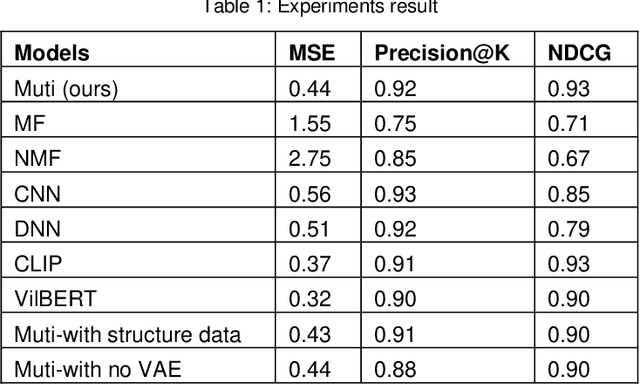


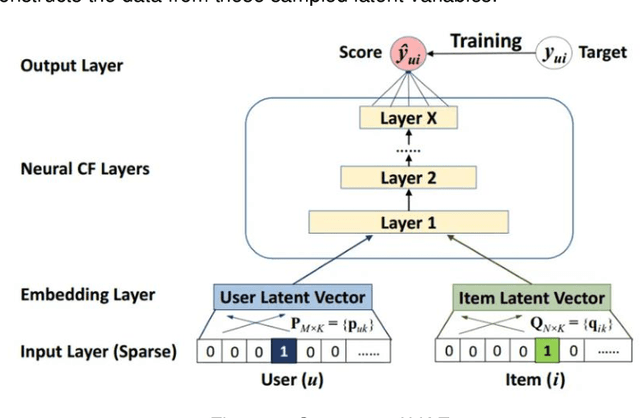
Abstract:Accurately recommending products has long been a subject requiring in-depth research. This study proposes a multimodal paradigm for clothing recommendations. Specifically, it designs a multimodal analysis method that integrates clothing description texts and images, utilizing a pre-trained large language model to deeply explore the hidden meanings of users and products. Additionally, a variational encoder is employed to learn the relationship between user information and products to address the cold start problem in recommendation systems. This study also validates the significant performance advantages of this method over various recommendation system methods through extensive ablation experiments, providing crucial practical guidance for the comprehensive optimization of recommendation systems.
Deep Adaptive Interest Network: Personalized Recommendation with Context-Aware Learning
Sep 04, 2024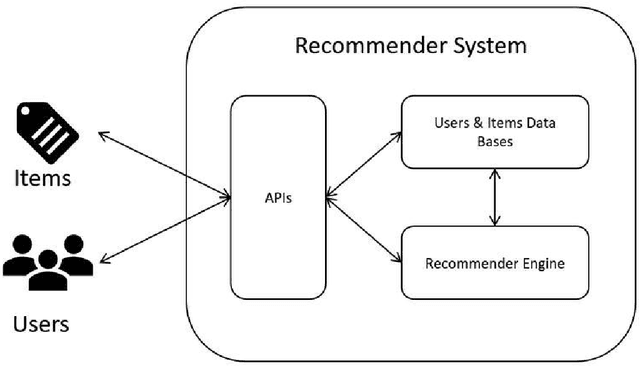

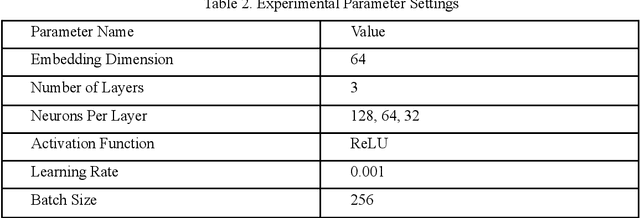
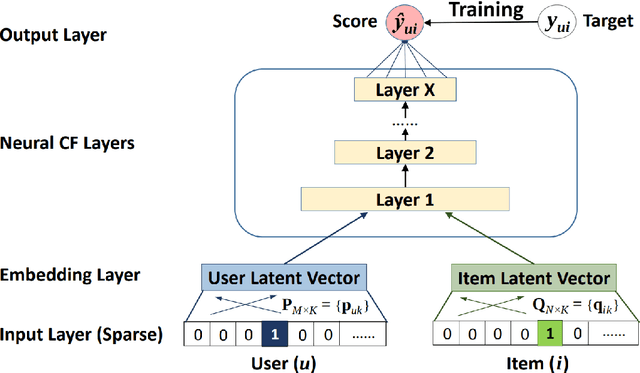
Abstract:In personalized recommendation systems, accurately capturing users' evolving interests and combining them with contextual information is a critical research area. This paper proposes a novel model called the Deep Adaptive Interest Network (DAIN), which dynamically models users' interests while incorporating context-aware learning mechanisms to achieve precise and adaptive personalized recommendations. DAIN leverages deep learning techniques to build an adaptive interest network structure that can capture users' interest changes in real-time while further optimizing recommendation results by integrating contextual information. Experiments conducted on several public datasets demonstrate that DAIN excels in both recommendation performance and computational efficiency. This research not only provides a new solution for personalized recommendation systems but also offers fresh insights into the application of context-aware learning in recommendation systems.
 Add to Chrome
Add to Chrome Add to Firefox
Add to Firefox Add to Edge
Add to Edge